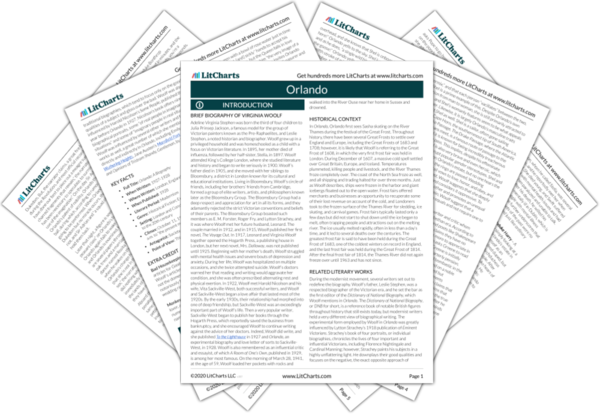’s husband. Orlando meets Shel, as she often calls him, during the 19th century, and they are engaged within minutes. Shel has many feminine qualities and traits, and Orlando says he is “as subtle and strange as a woman.” Using the book’s fictional biographer as a mouthpiece, Woolf claims the sexes “intermix,” and that each person “vacillates” between the two, and Shel is a prime example of this. Despite Orlando’s own transition from man to woman, she is still primarily attracted to women, and Shel’s womanly features seem to be what appeals most to her. Likewise, it is largely Orlando’s masculine traits that attract Shel as well. Shel is a sailor, often gone sailing around the Cape Horn, the southernmost tip of South America, near the Drake Passage. The Drake Passage, where the Atlantic and Pacific oceans meet, is a famous route of passage to the New World, and it is known for being incredibly treacherous and dangerous to pass. This implies, despite his effeminate personae, that Shel is also very brave and even heroic, which further serves to disrupt popular gender stereotypes. Shel and Orlando are married on Orlando’s estate, but no one hears the word “Obey” spoken as the rings are passed. Wedding ceremonies typically entail vows to love, honor, and obey, and with the omission of the last, Woolf suggests that she deeply disagrees with this notion and considers it oppressive. To “obey” puts one beneath the other and promotes an unequal distribution of power. In this vein, Woolf suggest that a marriage should occur between equals and not require one to “obey” the other.
